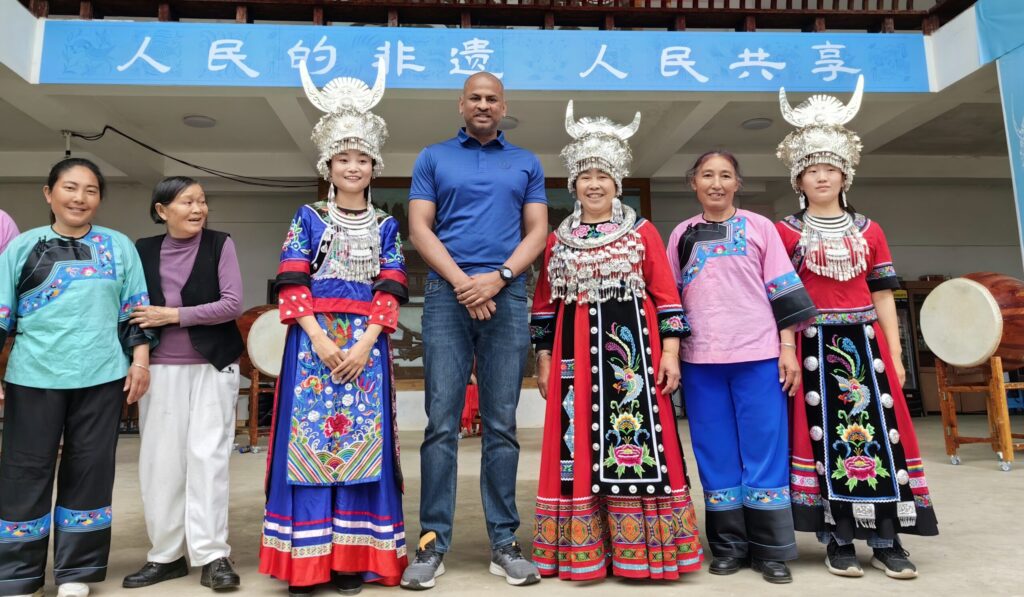BRISL Experience China’s Rural Revitalization And CPC’s Role In Advancing Common Development.
From April 20 to 23, 2025, Yasiru Ranaraja, Founder of the Belt and Road Initiative Sri Lanka (BRISL), took part in a series of official events and field visits organized by the International Department of the Communist Party of China (CPC) Central Committee. These included the “Stories of CPC—Chongqing’s Achievements in Practising Xi Jinping Thought on Socialism with Chinese Characteristics for a New Era” seminar in Chongqing, and the “Global Insights about CPC: CPC’s Role in Advancing Modernization of the Global South” seminar in Beijing. The visit was facilitated through the recommendation of Research and Development International (RDI) and extended by Mr. Zhu Xiang (Zac) on behalf of Dr. Wang Liyong, Director General of the China Center for Contemporary World Studies (CCCWS).
Observing China’s Rural Revitalization on the Ground
The program commenced with a field visit to Pengshui Miao and Tujia Autonomous County in Chongqing Municipality, providing firsthand exposure to China’s ongoing Rural Revitalization strategy. Mr. Ranaraja, alongside other think tank scholars from South and Southeast Asia, explored key rural communities that exemplify integrated development models.
The delegation visited Dongliu Village, where grassroots governance initiatives and the industrial park model were observed, showcasing localized efforts for poverty alleviation through agricultural productivity and industrial linkages. In Shipen Village, the group examined a hybrid model combining agriculture and tourism, particularly through Miao ethnic stilted architecture and cultural heritage tourism. The final field visit in Luojiatuo Village further emphasized ethnic cultural preservation and community-led development among the Miao ethnic minority.
These immersive engagements demonstrated how the CPC’s development model intersects rural livelihoods with ecological conservation, cultural sustainability, and tourism-based income generation—key pillars of the national Rural Revitalization strategy.
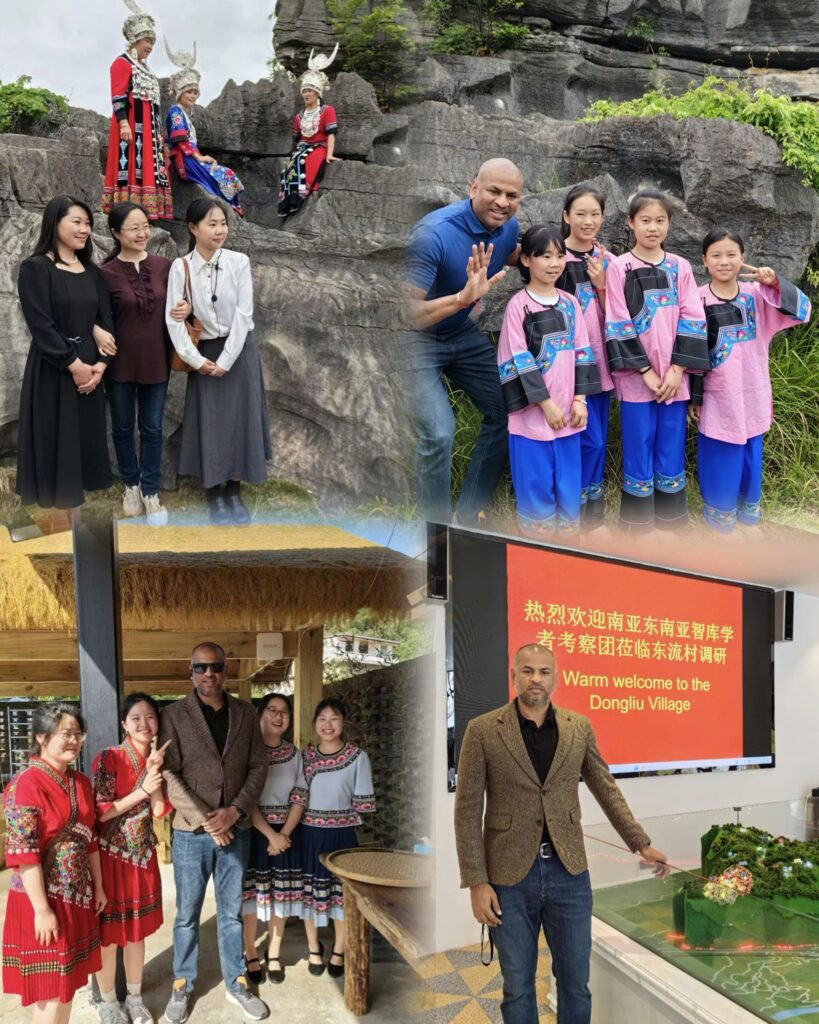
Academic Dialogue: CPC’s Global Development Framework
Following the fieldwork, Mr. Ranaraja participated in the Chongqing seminar moderated by Madam Sun Haiyan, Vice Minister of the International Department of the CPC Central Committee. The event reflected on local implementation of Xi Jinping Thought and its implications for global governance and sustainable development. The Chongqing experience reinforced the connection between ideological principles and applied governance mechanisms at the grassroots level.
On returning to Beijing on April 22, Mr. Ranaraja met with Madam Wang Xiaoying, Deputy Director of CCCWS, and senior members of the Center including Dr. Zhang Weijie, Mr. Zhu Xiang, and Ms. Xu Xu, where they exchanged ideas on South-South cooperation, policy communication, and research collaboration under the Belt and Road framework.
On April 23, Mr. Ranaraja joined the “Global Insights about CPC: CPC’s Role in Advancing Modernization of the Global South” seminar. The event brought together high-level participants including Ma Hui, Vice Minister of the International Department of the CPC Central Committee, and Hong Da Yong, Vice Minister of the Publicity Department of the CPC and Deputy Director of CCCWS.
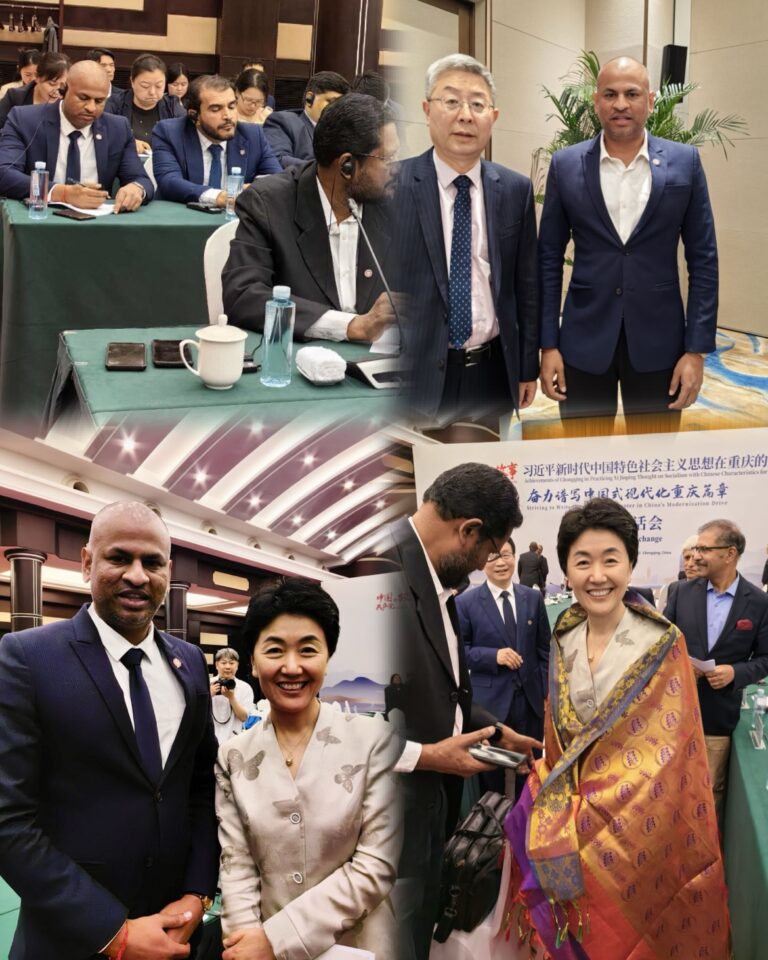
During the forum, Mr. Ranaraja delivered the following statement:
“We recently visited Pengshui Miao and Tujia Autonomous County, including Luojiatuo, Dongliu, and Shipen villages, to observe firsthand the CPC’s rural revitalization strategies. These represent China’s commitment to sustainable development and inclusive community building. While such forums bring together diverse voices from Asia, a major gap persists in the form of inadequate regional communication and absence of a cohesive development model. As one of the few regions globally lacking a unified economic framework, Asia must prioritize multilateral integration and dialogue.”
He further elaborated on BRISL’s foundation and mission:
“BRISL emerged at a time when over 90% of Sri Lankan policy banks and think tanks were driven by externally influenced narratives. We chose to provide independent, evidence-based analysis of the BRI, with particular focus on correcting misconceptions and amplifying its development potential.”
Mr. Ranaraja addressed the politicization of the Chinese debt narrative, noting:
“Despite academic evidence showing Chinese debt forms a minor share of Sri Lanka’s external obligations, the ‘debt trap’ narrative has negatively impacted global perceptions of the BRI. Notably, bilateral projects such as the Hambantota Port and Colombo Port City, along with road and irrigation initiatives, were executed under transparent intergovernmental agreements, emphasizing mutual benefit.”
He concluded with remarks on the future of the BRI in a shifting global economy:
“With China’s economy registering 5.4% growth in Q1 of 2025, initiatives such as rural revitalization and the ‘One Village, One Product’ program have renewed relevance for regional integration. While trade frictions persist, the BRI offers opportunities for countries like Sri Lanka to realign supply chains and build resilient production capacities.”
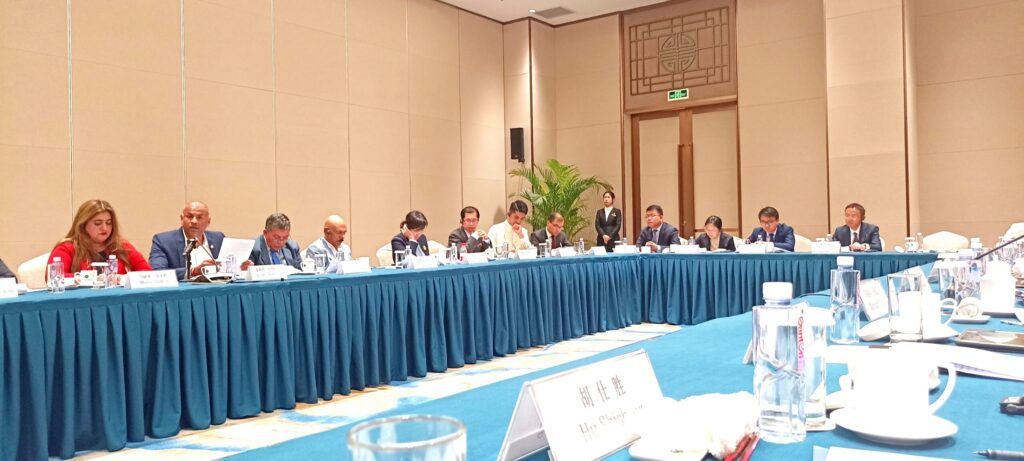
Responding to Strategic Concerns: Hambantota and Beyond
In response to a question from Professor Ren Xiao, from the Academy of Regional and Global Governance at Beijing Foreign Studies University, regarding the global backlash on the Hambantota Port lease, Mr. Ranaraja pointed out that the issue was rooted in communication failures and perception mismanagement.
He stated:
“The term of the lease—99 years—was a key flashpoint in domestic political discourse. Had the lease been structured as three consecutive 15-year terms, public resistance might have been significantly reduced. In contrast, the 38-year lease of the Colombo South Terminal to CMPort in 2010 is now considered a strategic success, generating competitive regional transshipment revenue while maintaining Sri Lankan sovereign interest.”
Mr. Ranaraja also emphasized the importance of considering expansion proposals for the Hambantota Port to other port operating companies. By diversifying partnerships and introducing more commercial ventures, the port could enhance its operational efficiency and mitigate the backlash it has faced. Such strategic collaborations would not only bolster the port’s economic viability but also contribute to a more balanced perception of foreign investments in Sri Lanka’s infrastructure development.
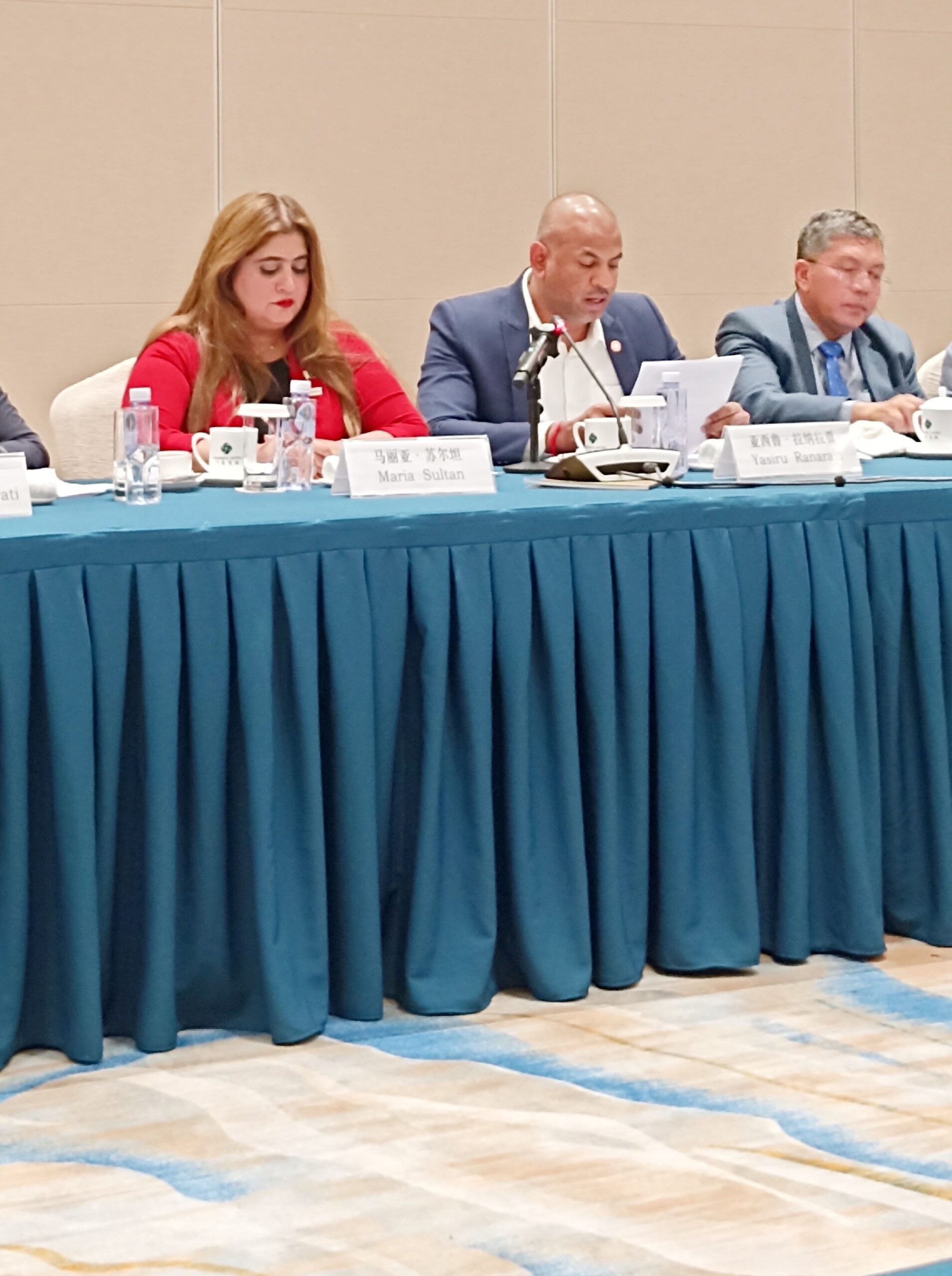
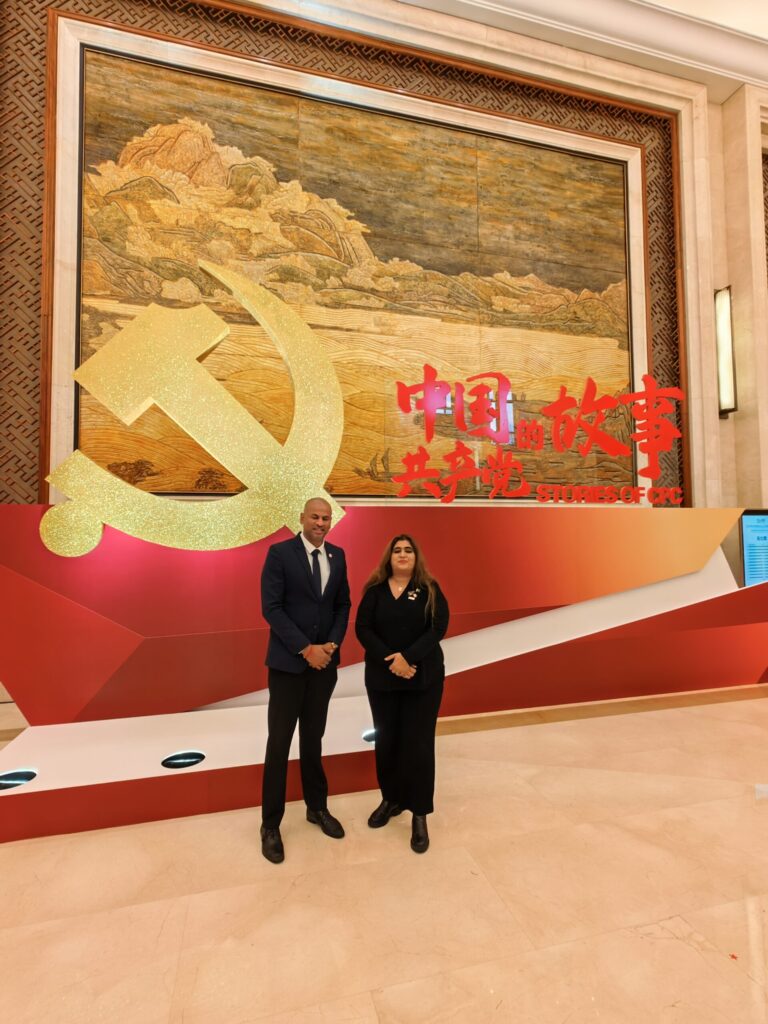
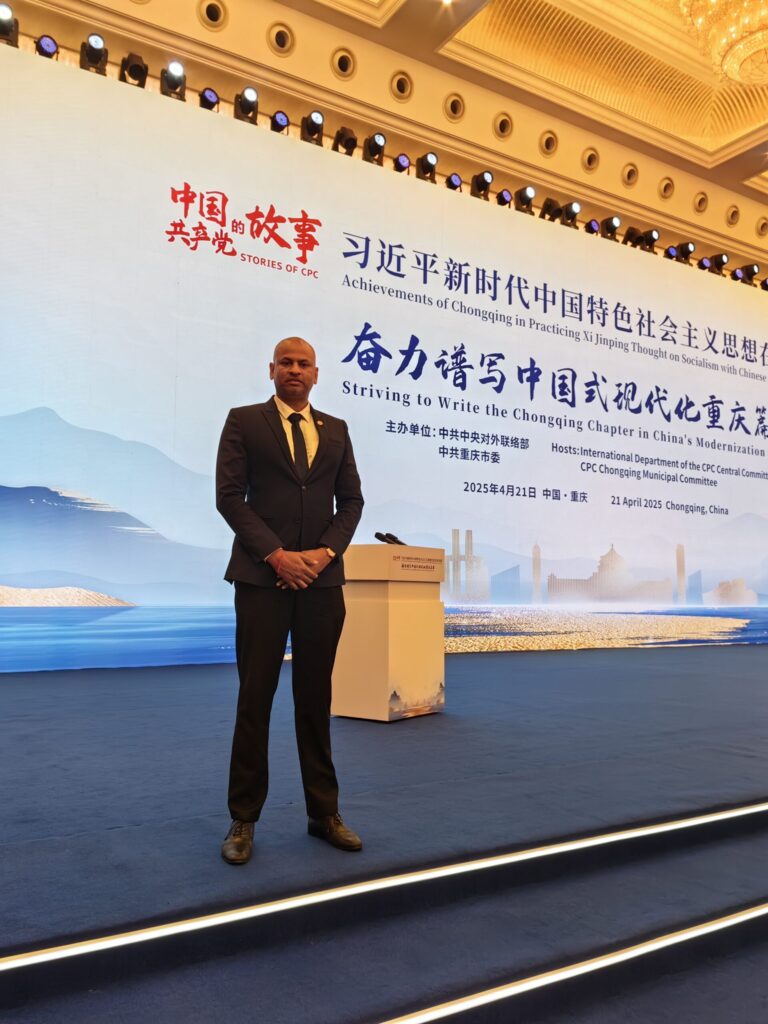
A Regional Exchange of Ideas and Experiences
The seminars and field visits hosted a distinguished delegation of 19 representatives from policy institutes, universities, and think tanks across Asia, including:
Raashid Janjua – President, Islamabad Policy Research Institute, Pakistan
Shahab Khan – Executive Director, The Bangladesh Center for Indo-Pacific Affairs
Soy Sopheap – Chairman, Cambodia-China Journalists Association
Chea Vannak – Director of News Department, Cambodia News Agency, Ministry of Information
Amit Dey – Head of the Department of History, Calcutta University, India
B.R. Deepak – Professor, Center for Chinese and Southeast Asian Studies, Jawaharlal Nehru University, India
Veronika Saraswati – Executive Director, Indonesia-China Partnership Studies
Antonius Sumarwan – Researcher, Indonesia-China Partnership Studies
Dana Listiana – Researcher, Institute for Social Sciences and Humanities, National Research and Innovation Agency of Indonesia
Soukanh Chithpanya – Dean, Faculty of Architecture, National University of Laos
Chai Ching Tan – Professor, International College, National Institute of Development Administration, Malaysia
Dipak Sarkar – President, Nepal Center for International Exchange, World Culture Net
Maria Sultan – Director General, South Asian Strategic Stability Institute, Pakistan
Muhammad Farooq – Senior Researcher, Pakistan-China Institute
Maricar Panda – English Director, Confucius Institute, Ateneo de Davao University, Philippines
Cavin Pamintuan – Philippine Director, Confucius Institute, Angeles University Foundation
Yasiru Ranaraja – Founder and Head, BRISL
Silva Lakshi – Acting President, Sri Lanka–China Youth Friendship Forum, Association for Sri Lanka–China Social and Cultural Cooperation
Hoang Hue Anh – Head, Department of Chinese Economic and Political Studies, Institute of Chinese Studies, Vietnam Academy of Social Sciences
The presence of senior scholars and government-linked researchers highlighted the deepening interest in understanding China’s domestic development pathways and their implications for regional cooperation under the Belt and Road Initiative.

